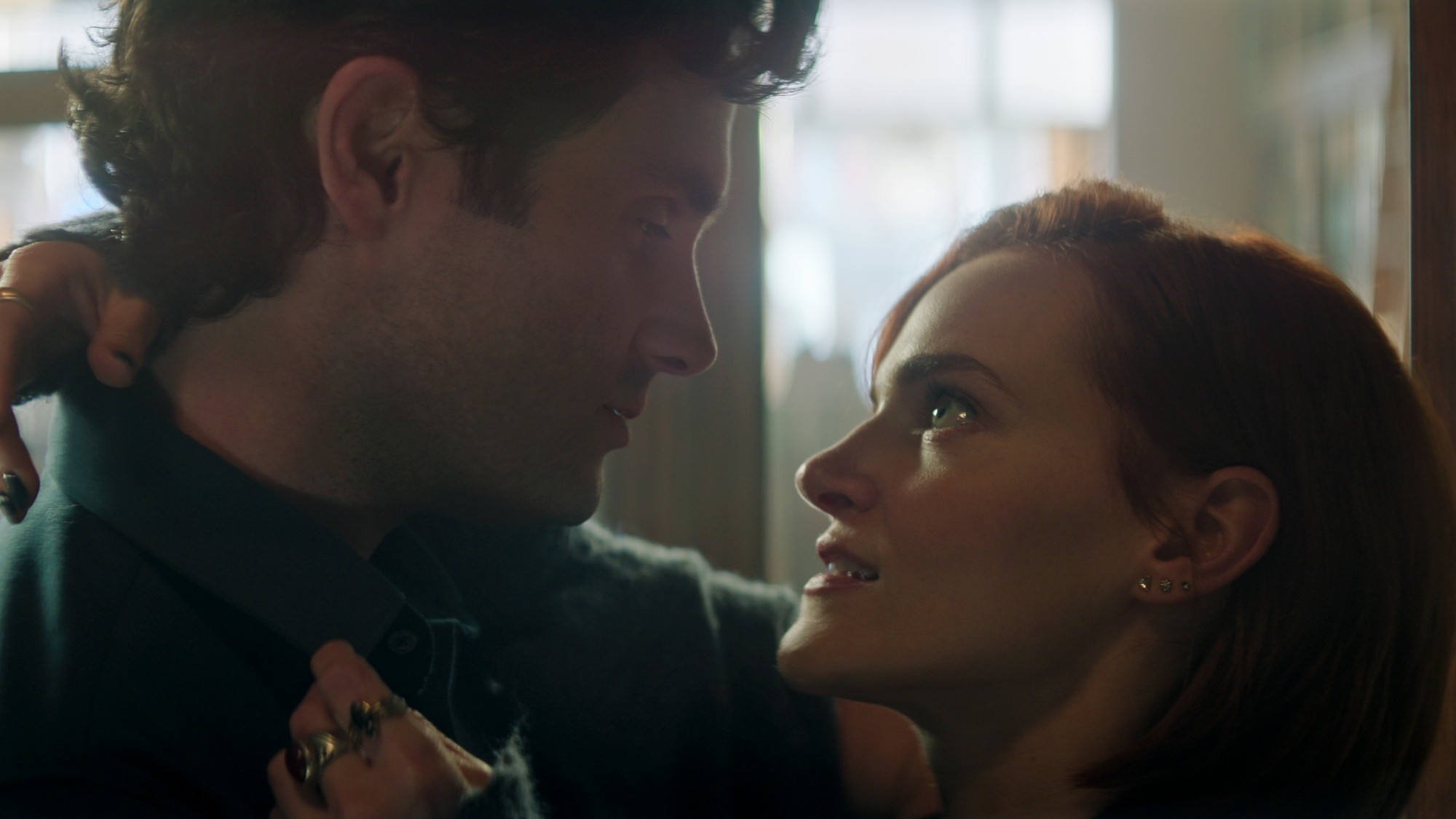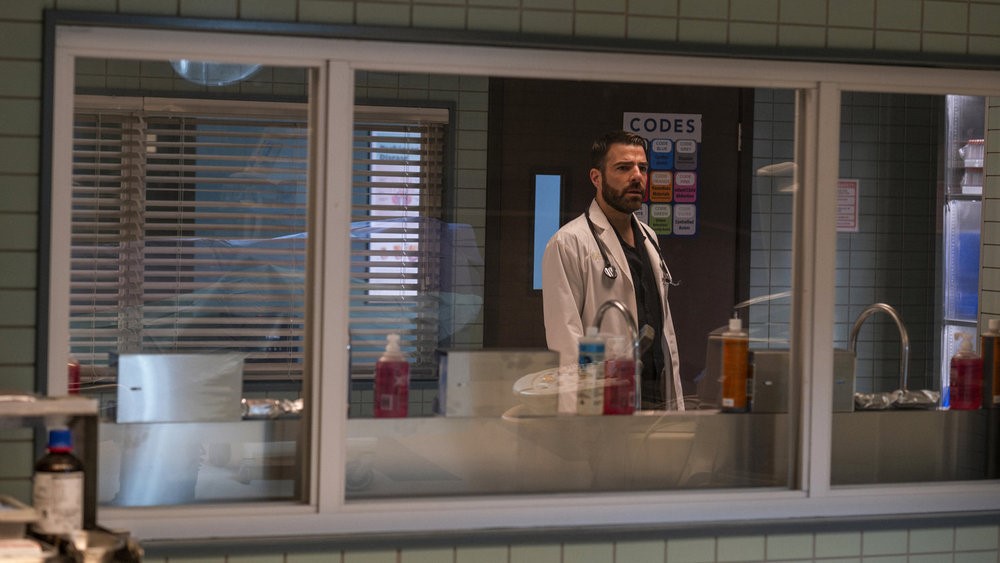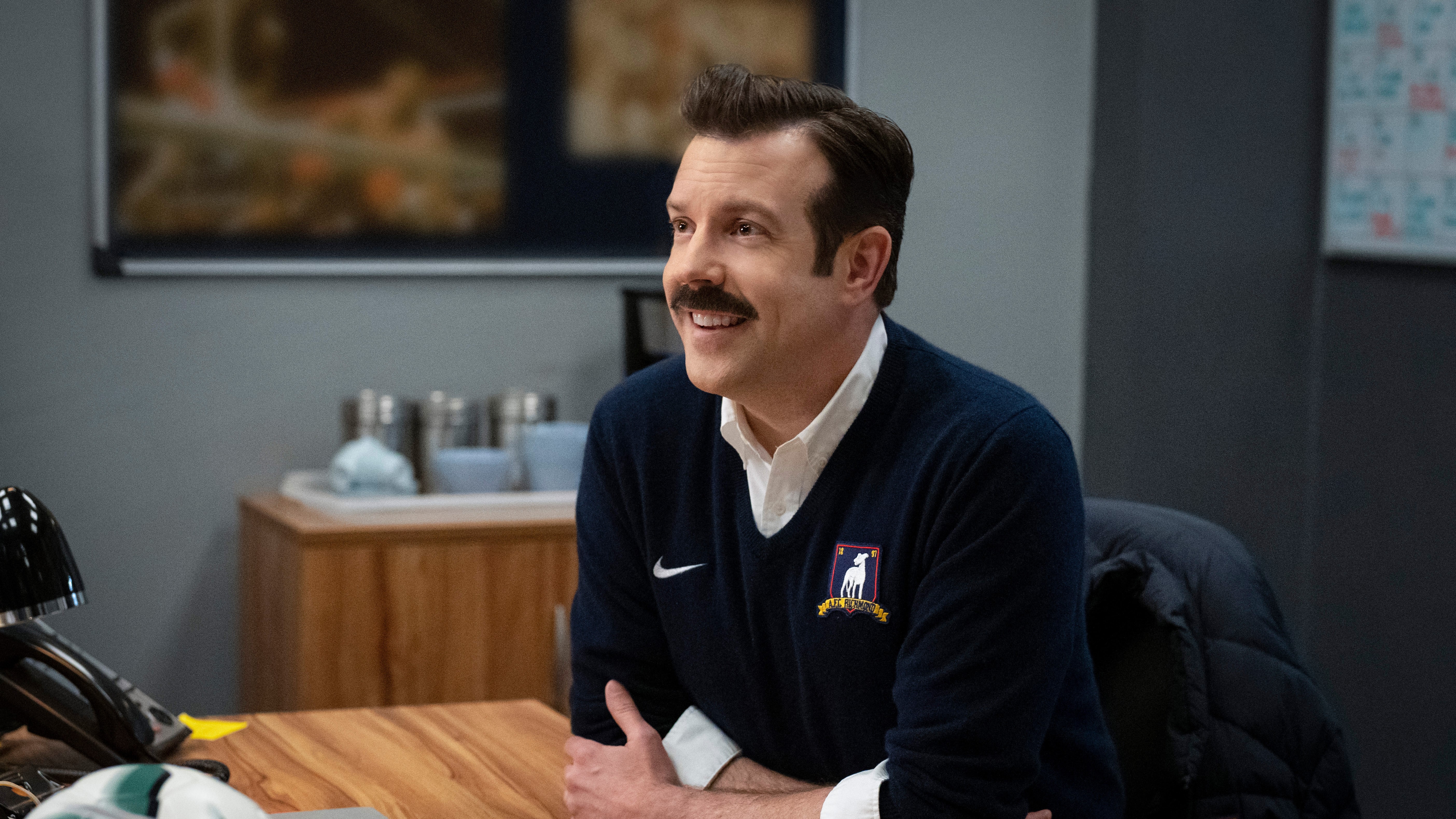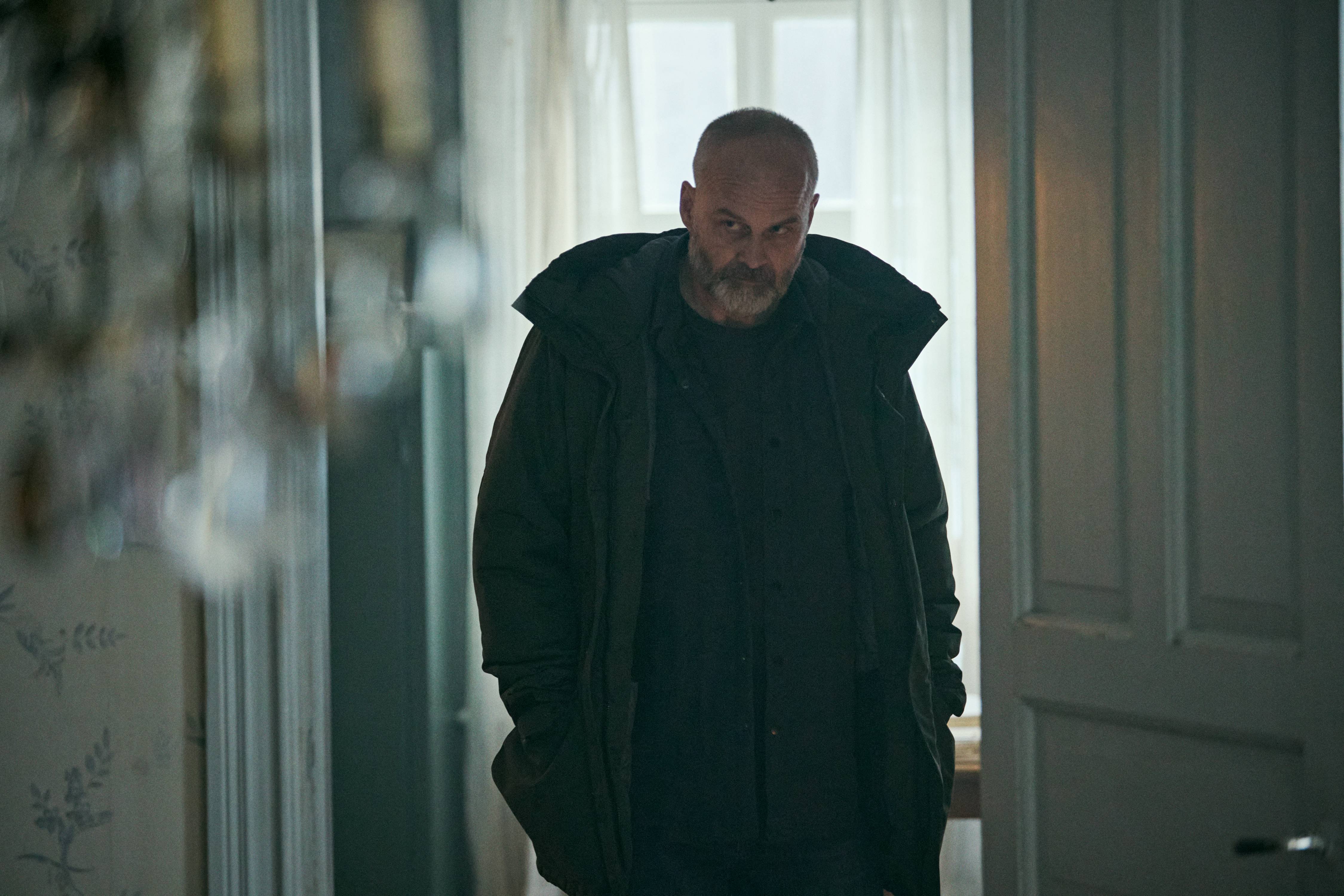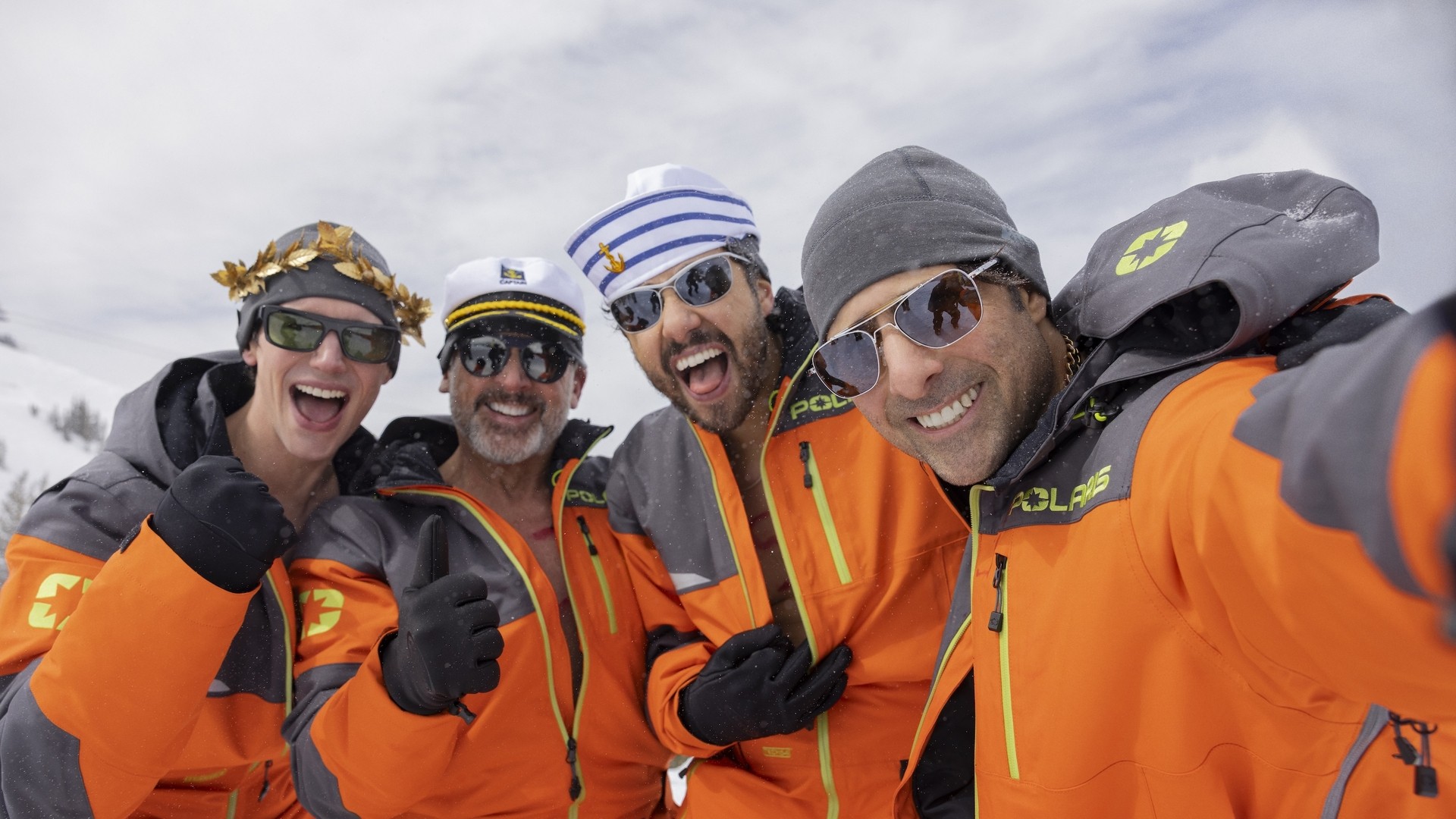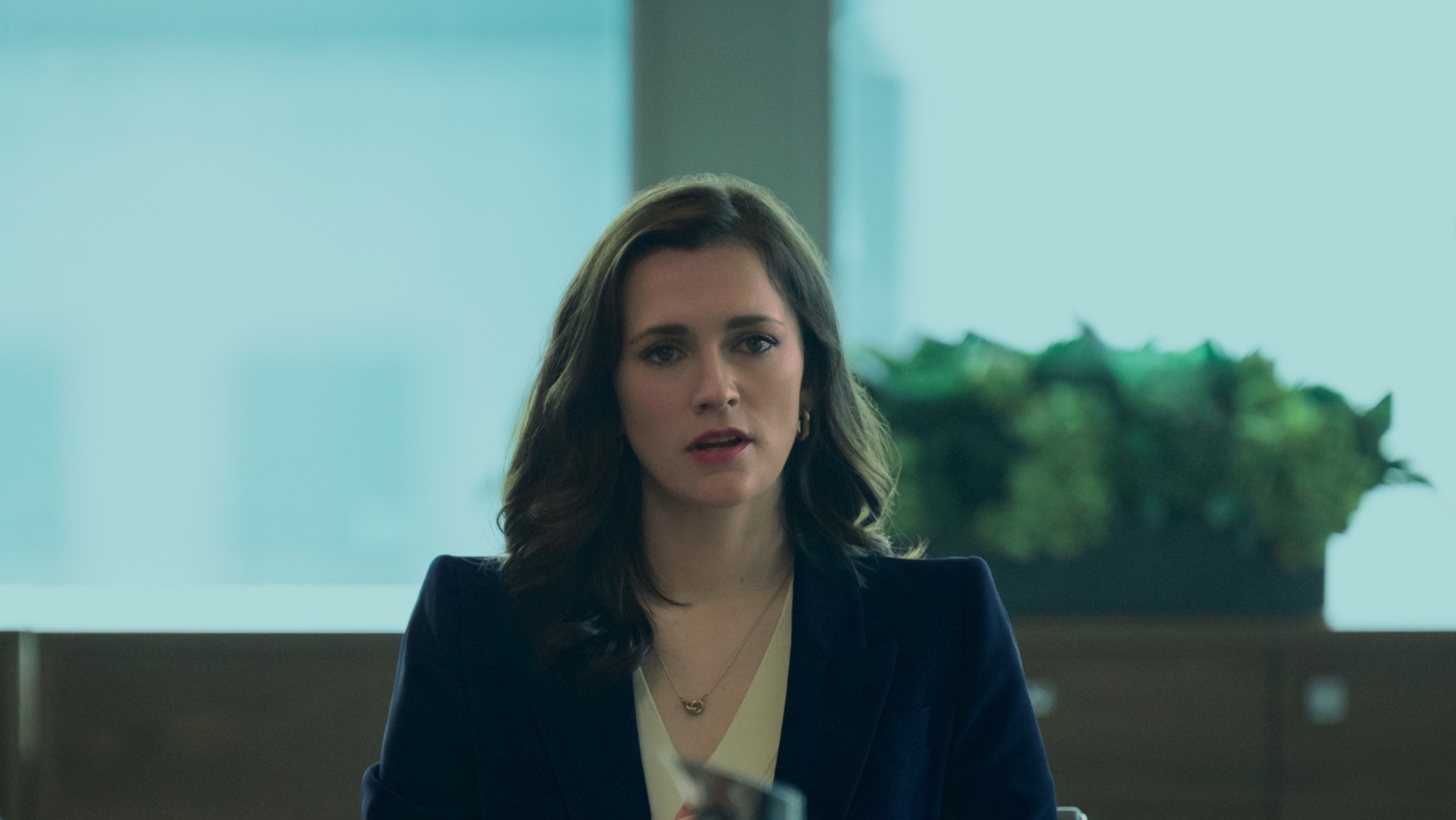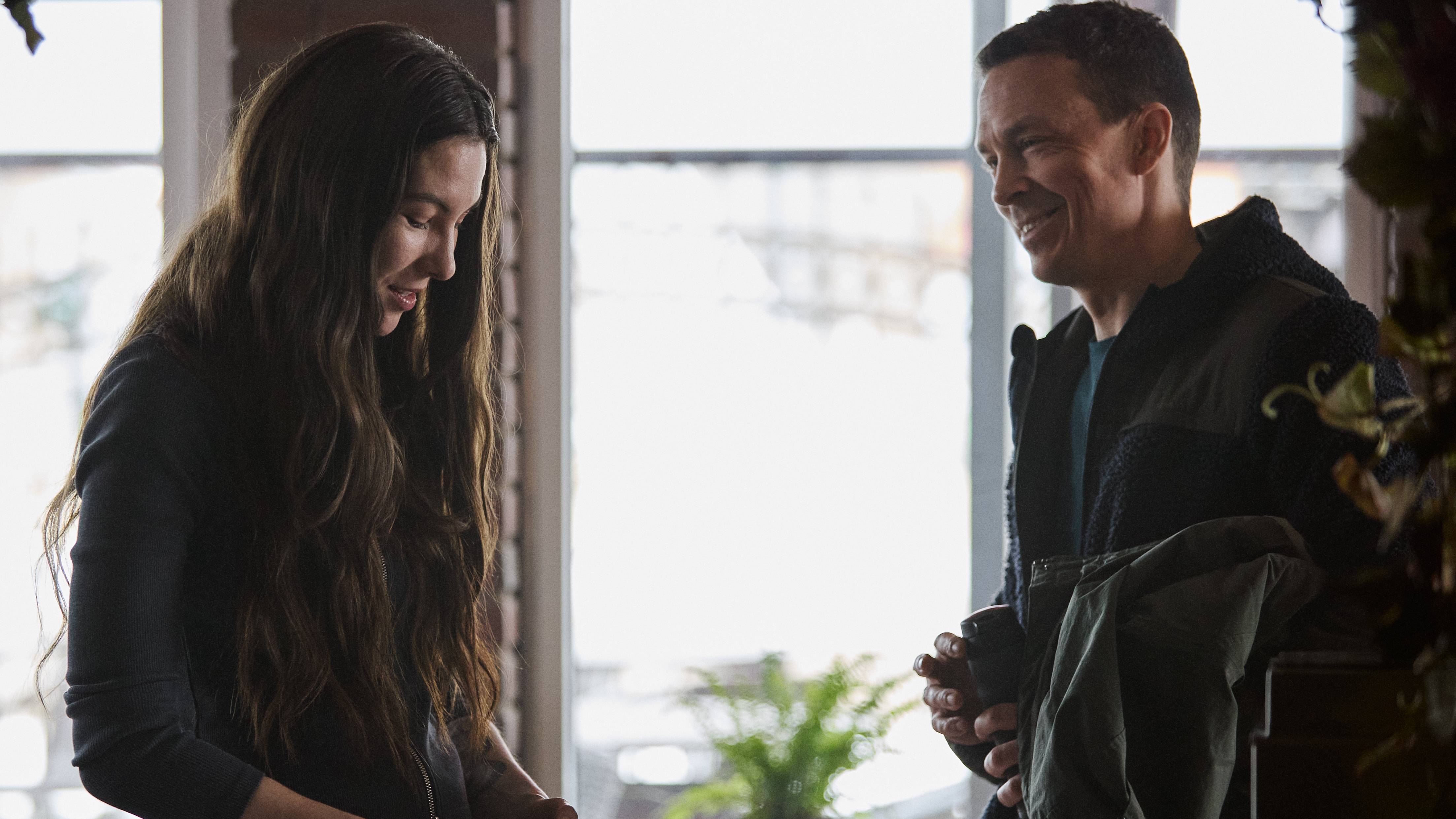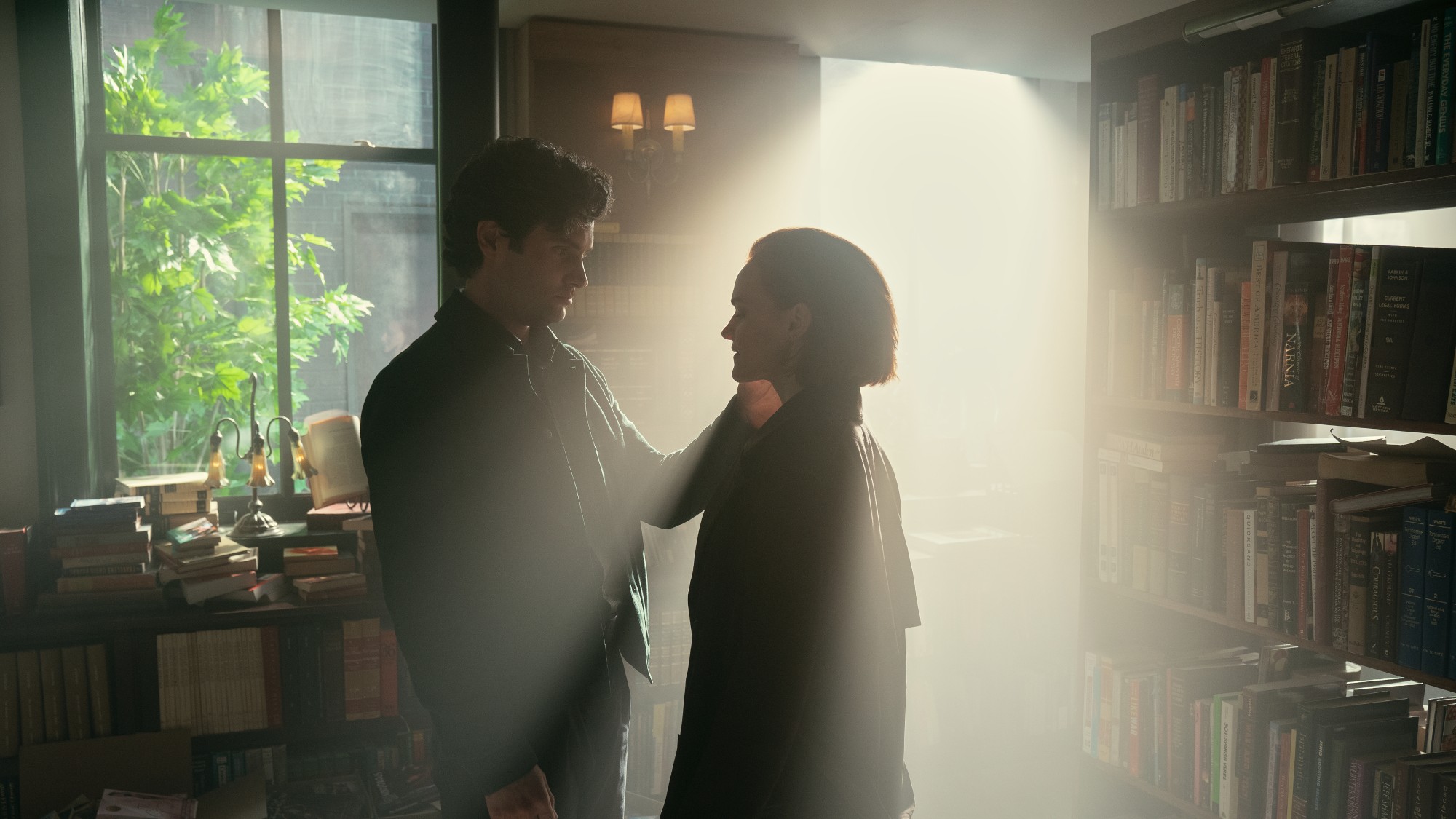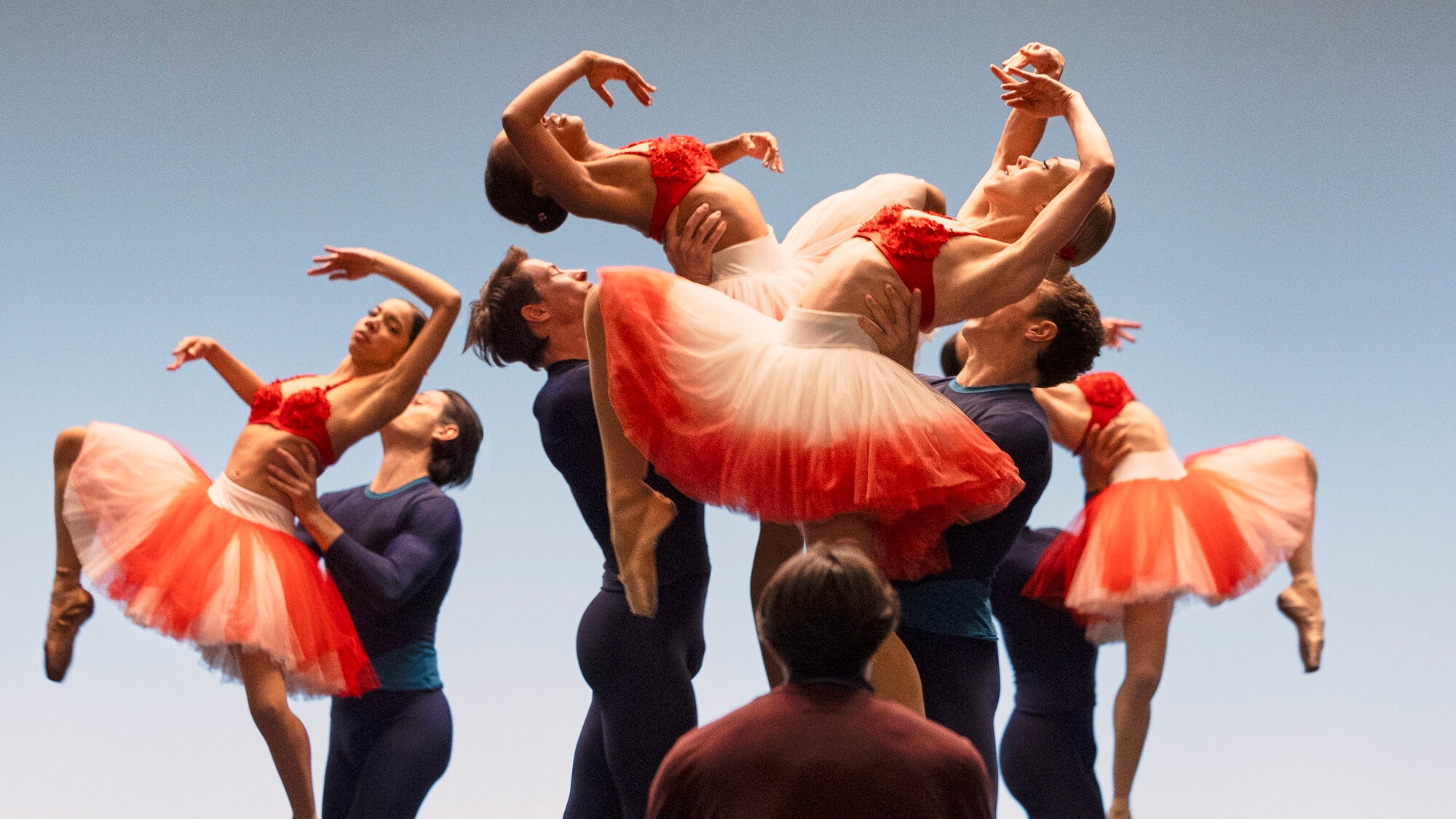'One Night in Miami' star Aldis Hodge on running forward the political football kicked off by his real-life character Jim Brown
With 'One Night in Miami,' Aldis Hodge offers a poignant, insightful portrayal of star athlete Jim Brown — a process he discusses in this in-depth interview.
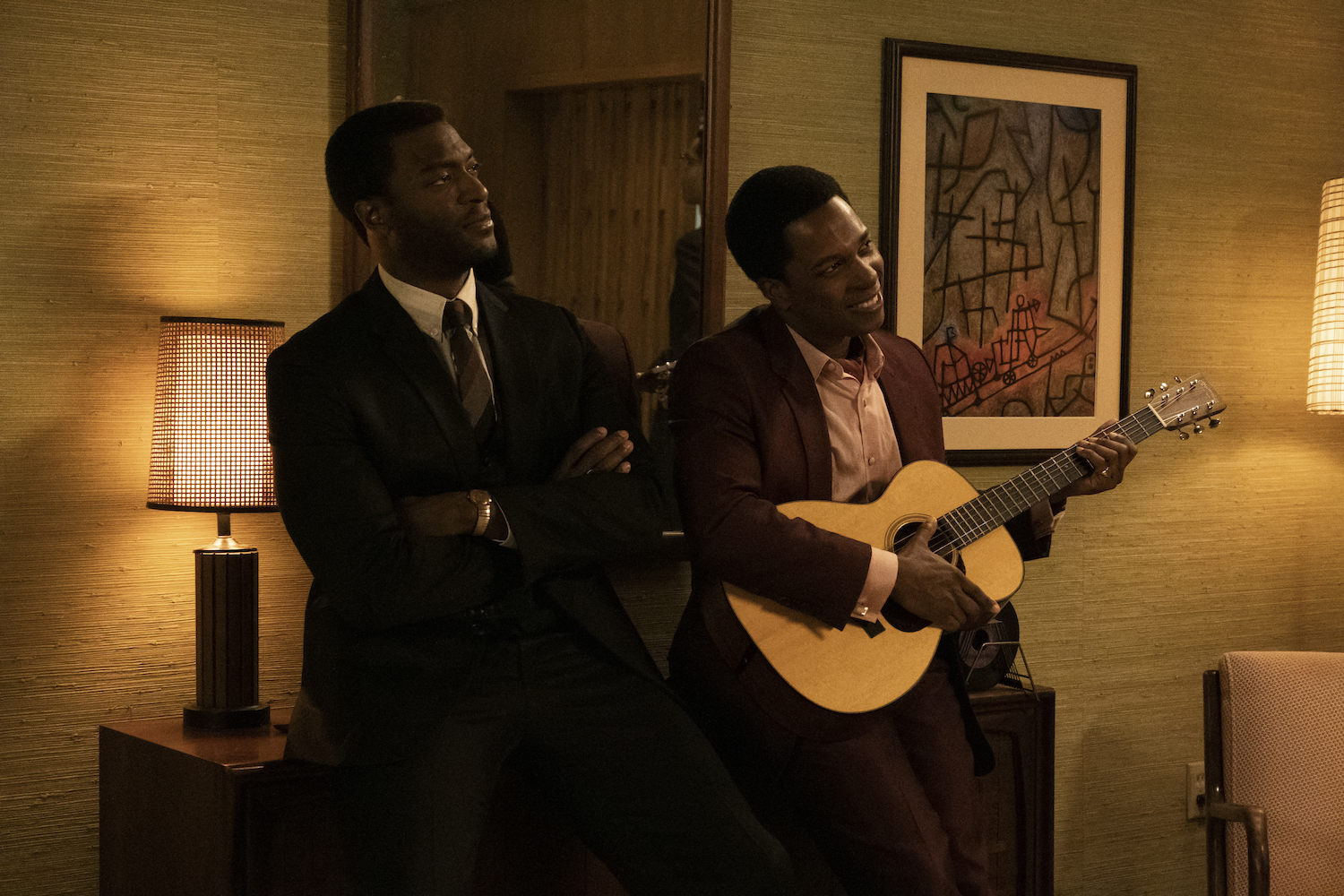
An adaptation of the 2013 Kemp Powers play of the same name, One Night In Miami speculates about the evening of February 25, 1964, when star athlete Jim Brown, religious and political leader Malcolm X, and r&b singer-songwriter Sam Cooke gathered in a Florida hotel room with boxer Cassius Clay to celebrate his victory over rival Sonny Liston. Directed by first-time feature filmmaker Regina King, the film offers an acting showcase for four young black actors as they embody the opinions and iconography of these cultural leaders, with Kingsley Ben-Adir as Malcolm X, Leslie Odom Jr. as Cooke, Eli Goree as Clay (soon to become Muhammad Ali), and Aldis Hodge as football pro and future actor Brown. Their dialogue fuels a conversation that has been going on about identity and empowerment since long before the play speculates it may actually have occurred, and one that remains particularly relevant as the black community continues to demand representation in the mainstream even as its members refuse to be portrayed as a monolith.
What To Watch recently spoke to Hodge about his role in the film, playing a football Hall-Of-Famer whose popularity — and commanding authority — changed opportunities forever for people of color in athletics, much less popular culture. In addition to talking about the technical process of preparing for the role, he revealed how he worked closely with King and his co-stars to find the soul and sound of Brown, and revealed the ways that what’s happening in the world right now liberated him to portray the conflicts these men faced with an intimacy and immediacy. Finally, he reflected on the ongoing discourse that this film nudges forward, and examines the perspectives in their dialogue that were perhaps surprisingly easy for him to relate to personally.
With celebrities particularly of the stature of these four, there’s always the real person and then our collective memory of these individuals. Other than the script, what ended up being the most important reference material for you to capture either his speech patterns, or just whatever you considered to be his essence?
The materials were mostly speeches that he gave a lot of speeches that he was giving you on the entertainment industry or economics. And then just different interviews where he was talking about the cultural issues of the time. All that kind of stuff really filled in my understanding of where his mind was at at this particular time on this subjects. And I only did the research that was in the sixties, or maybe just creeping into the early seventies a little bit, but for me, it was all in that wheelhouse because I wanted to see who he was then and understand where that drive and that passion was coming from and what was motivating him. And he was an impressive, impressive young man back in the day.
Was it for you a matter of figuring out an impersonation, or were there aspects of his behavior that you wanted to fold into your performance?
I mean, when it comes to the physical it's definitely mannerisms and cadence and the voice, the gait and in the walk and things like that. But even if you're playing a fake character, right. If you're playing it, you still want to bring that degree of honesty, but when it's you depicting a real person, it's even more important to show a real human being as opposed to a caricature of them, and it's a little bit tougher because everyone knows and has seen this person because he is so famous. They might be looking for certain things, similarities, so the scrutiny is intensified. But the beauty here is that you get to show somebody in an environment — what you don't get to see when the cameras are running, you get to see them in a raw environment. So you get to have fun with showing a different side.
With historical fiction I think there often is an impulse to look at a moment in time and imbue it with a significance or sense of self-awareness based on our present point of view. How tough was it to deliver this dialogue and ensure it felt organic and not lean on its relevance to what’s happening in the world now?
Get the What to Watch Newsletter
The latest updates, reviews and unmissable series to watch and more!
It wasn't tough because of its relevance to what's going on in the world right now. There is no deviation in the value of it then versus now, because we've been having the same conversation for such a long time. And Kemp [Powers] did a really fantastic job with giving us conversation that flows because every beat connects and makes sense, right? His script is like a Lego set, you know what I mean? And it really just worked out because all the points that we were making, we were having the necessary disagreements at points that then rounded out to the sensible moments of agreement. And it all made sense. So I didn't really feel like we had to work hard when it came to adopting or adapting the value of the words and making it pop, because it was there. And we know they were having this conversation then, and we know we still have this conversation now, so there was an ease to it because the conversation is so familiar to me.
What kind of an atmosphere did Regina create on set as a first time director? And what constitutes freedom as a performer on a project that’s based on an acclaimed play and largely set in one location?
So I'll start with the latter. The freedom comes from you being able to engage and execute your idea of this thing, right? With every project, you kind of work within the structure of, okay, here's a script, here's the idea of the character, now make it your own. And we were still allowed to make these men our own. And I think we were all driven to play the honesty as opposed to playing the fallacy, or the fantasy of who we know them to be. And when I say the fantasy, I'm saying, we see the image of the celebrity or the patriarch in this way. We see these big, big, but we're playing human beings. We're playing men who are just brothers in arms.
But when it came to Regina, she really created just a comfortable environment where she allowed us to play and make those choices because she was so collaborative. She had a really clear vision, and I can't stress that enough because there were times when we would have questions; I know I would go up to her and be like, am I being consistent? Does Jim feel natural here? Does the voice sound goofy? And she's like, you're doing good. Stay here, stay here. There were moments where she really wanted to punctuate the vulnerability, so she would just drive us to that and allow it to just sit and settle. So she really was clear about what she wanted, her intentions, and how we should get there. And she's awesome. She's a fantastic director.
One of the things I think this film explores especially well is the idea that the black community can have a sense of unity without being a monolith. As an actor and public figure is there a perspective among these great men that you find yourself agreeing with the most?
Oh, sure. Absolutely. I mean, there are points that all four of the men made in the film that I agree with because I have been through those things, and I have aspired to achieve others. I, myself growing in my career, when you expand the purpose or the point of your agenda beyond yourself, the responsibility adds weight, but it's a much richer and more fruitful experience. But with that comes much more daunting challenges along the way, and I deal with them on a regular basis. So they all made points. Jim had experiences that Ihad. Malcolm saying "we ain't got a choice. We're out here dying in the streets," I've been that person a few times last year. Like, hey, I don't have time for the jokes at the games. But it all resonates with me and I know it resonates with a lot of us in various ways. And now it's just up to us to figure out what to do with that experience. And a lot of us are doing something with it. I myself am doing what I can with it. But again, I feel like this is a reaffirmation of the fact that I need to continue doing what it is in my heart that I feel is needed to help move things forward. And I hope that it gives that sense of reaffirmation to our audience.
Jim Brown has a pretty amazing filmography. If you could follow in his footsteps, which of his movies would you like to star in a remake of?
I would like to answer, but as an actor, I have established for myself a long time ago that I'm looking to just carve my path. So there's a lot of movies I look at, but I don't really look to redo. I'm just trying to figure out like, what is it I'm supposed to be doing, you know what I mean? So I can't answer that one for you brother. I wish I could.
In that case, is there a favorite of his movies that you either love watching or you think best captures his spirit?
Let's see. Man, why am I forgetting? It's a Western that he did, and that was the one that I actually said ‘I'm going to watch this.’ Because I didn't want to watch any of his films while I was doing research because it was after this particular time and I wanted to stay in the sixties. So I purposely didn’t, but this Western is like right at the tip of my tongue — 100 something.
We’re assuming this was 100 Rifles, his 1969 film with Raquel Welch and Burt Reynolds, but Brown has a number of underappreciated classics from this era, including Dark of the Sun with Rod Steiger and the Donald Westlake adaptation The Split — neither of the last two are Westerns, but well worth checking out. In the meantime, One Night in Miami opens January 15, 2021.
Todd Gilchrist is a Los Angeles-based film critic and entertainment journalist with more than 20 years’ experience for dozens of print and online outlets, including Variety, The Hollywood Reporter, Entertainment Weekly and Fangoria. An obsessive soundtrack collector, sneaker aficionado and member of the Los Angeles Film Critics Association, Todd currently lives in Silverlake, California with his amazing wife Julie, two cats Beatrix and Biscuit, and several thousand books, vinyl records and Blu-rays.

